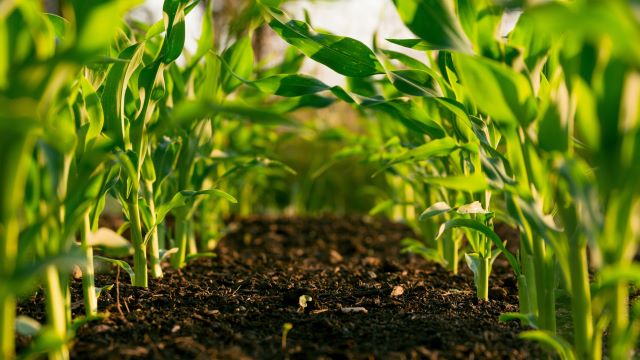By Saïdou Ahamada Mtsapwé
DIMANI, COMOROS — At sunrise, small plots on the volcanic slopes of Ngazidja glow with promise. Farmers tend to vibrant rows of cassava, ginger, and vanilla without a drop of synthetic fertilizer—cultivating soil health and homegrown prosperity through organic methods.
What once began as a few experimental gardens has blossomed into a nationwide movement—one driven by farmers, NGOs, and the Comorian government to build greener, more resilient local food systems.
A Climate-Smart Kickoff
In early 2025, villagers in Dimani marked the launch of a $10 million UNDP–GEF project to strengthen climate-resilient agriculture and value chains across five regional centers, including Sidjou and Mledjele . Focused on diversification and training, it helps farmers pivot toward organic ginger, turmeric, and resilient cassava—building both ecological balance and market potential.
Vanilla and Ylang-Ylang: Organic Icons
Comoros’ volcanic soil nourishes two of the world’s signature organic exports: vanilla and ylang-ylang oil. Vaniacom Ltd leads the charge—working with around 150 smallholders (80 percent women) to produce EU-certified, fair‑trade vanilla, yielding some eight metric tons annually. Thanks to APILE support, the cooperative can reinvest profits into health care, profit sharing, and modern processing—all while maintaining pesticide-free cultivation.
Training, Seeds and Sanitary Systems
SPS (sanitary and phytosanitary) systems are also advancing. An EU–COMESA–INRAPE investment of €3.2 million has trained more than 35 inspectors and strengthened food safety controls on farms and in export facilities . This ensures Comorian crops meet regional and international standards—a win for producers and consumers alike.
Reviving the Roots: Seed Banks and Farmers’ Hubs
Under the High-Level Comoros Ministry and UNDP-supported adaptation push, national Centers for Rural Economic Development (CRDEs) across Comoros now host seed banks, weather stations, and training sessions. Here, farmers learn organic composting, irrigation, agroforestry, goat husbandry, and sustainable poultry—their farms becoming living laboratories of eco‑agriculture.
Women, Youth and the Future of Soil
Organic farming in Comoros is not only eco‑wise—it’s community-wise. Women, often primary household cultivators, gain income by growing high-value crops. Youth—long migrating in search of opportunity—are now returning to work with nature, not away from it. This intergenerational revival is rooted in tradition, but reaching toward modern markets and sustainability.
Food Security Through Soil Stewardship
Despite importing around 40% of its rice, Comoros sees organic diversification as the pathway to resilience. CRDE-led efforts in goat and poultry breeding also add protein sources while countering soil erosion. Together, these practices are knitting environmental stewardship and food safety into daily life.
An Organic Tomorrow
In Dimani, farmers gather around shaded nurseries, preparing new seedlings. “This soil remembers what we do,” says farmer Hajara Ahmed, kneeling in rich loam. “When we care for it naturally, it gives back—and gives our children a better life.”
As Comoros nurtures its organic revolution—from spice groves to seed banks—it’s planting the seeds of sustainability: ecological stewardship, economic empowerment, and national pride, all grown from the soil.
Sources:
- UNDP–GEF Comoros climate‑smart agriculture launch
- EU Delegation press: Vaniacom Ltd organic vanilla success eeas.europa.eu+1vanillebionour.com+1
- COMESA–EU–INRAPE sanitary/phyto upgrade €3.2 million adaptation-undp.org+3comesa.int+3spgrc.org.zm+3
- UNDP adaptation: CRDE hubs, weather stations, seed bank training ccardesa.org+4adaptation-undp.org+4adaptation-undp.org+4
- CCARDESA / FAO overview of crop & livestock diversification ccardesa.org


